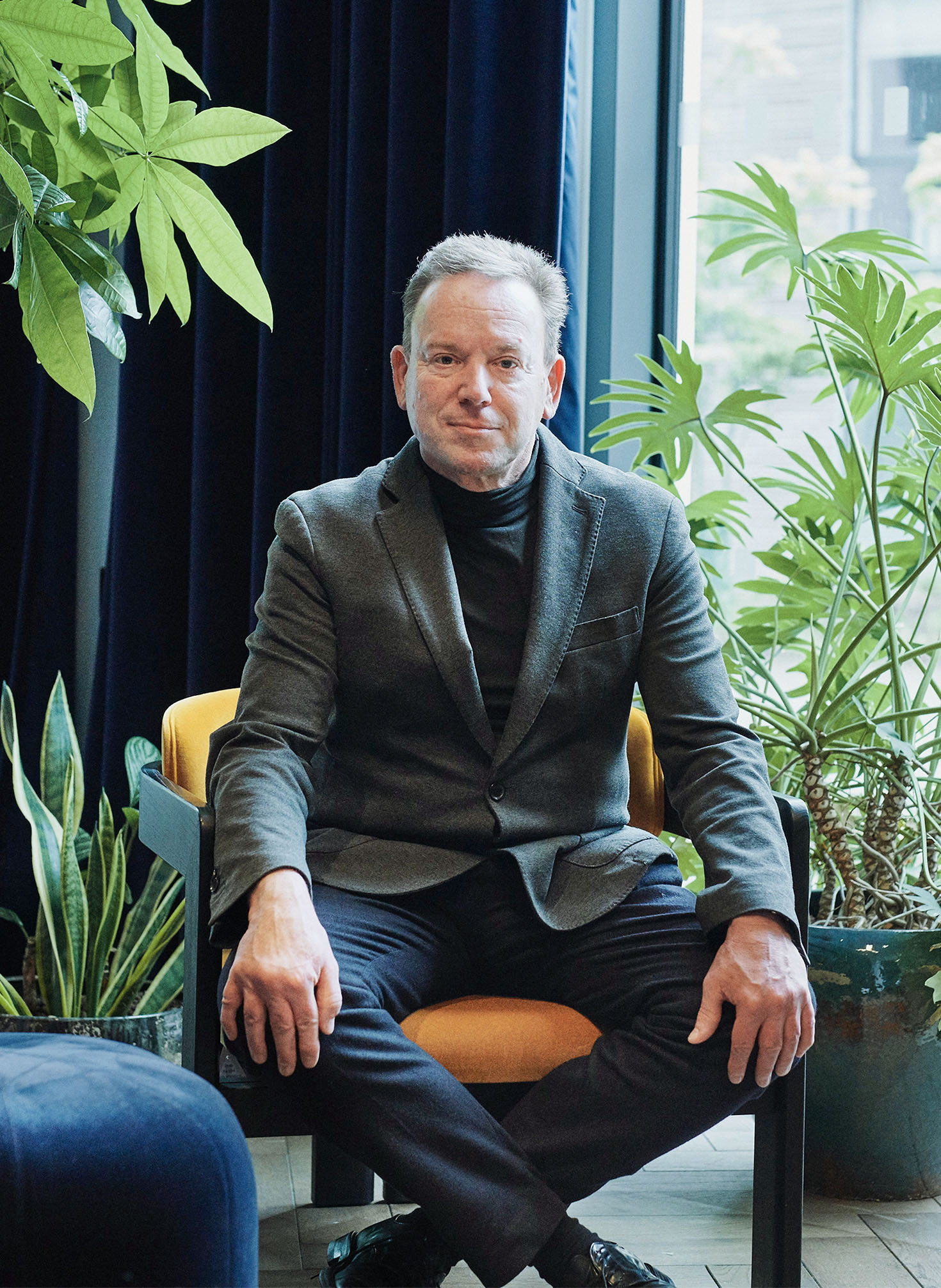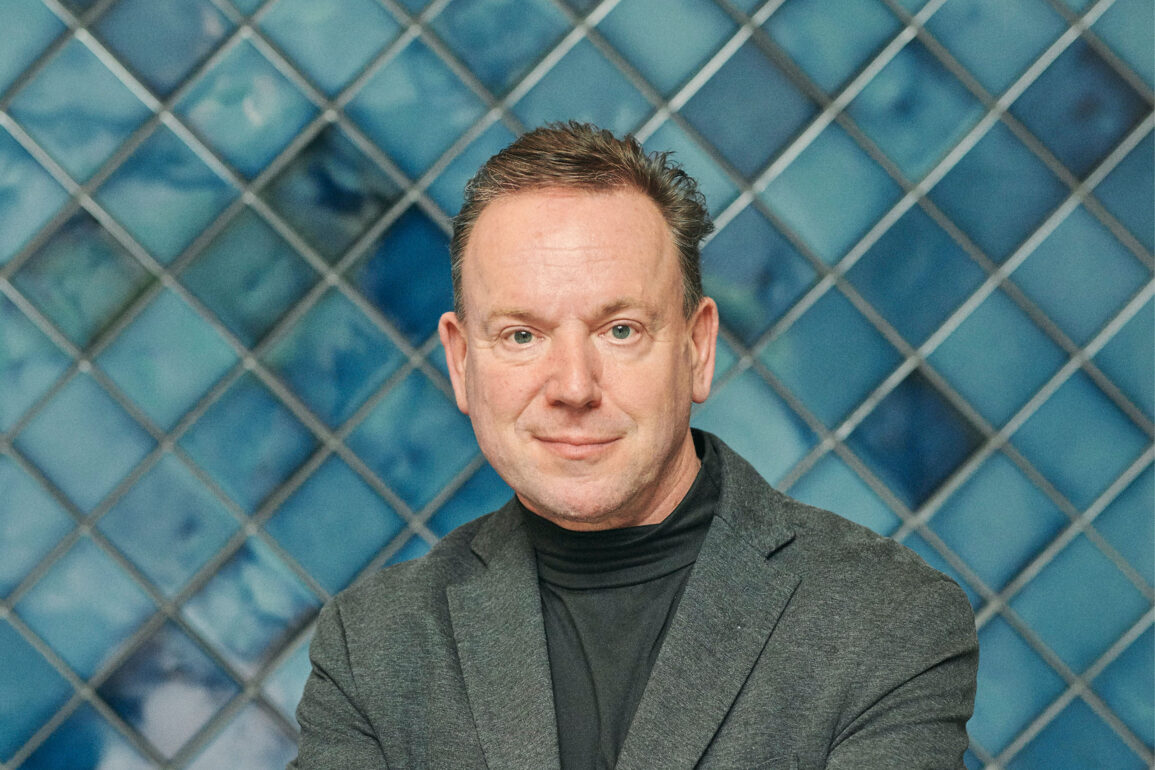Our society needs to change if we’re going to have any chance of tackling challenges such as global warming and the unequal distribution of wealth. What’s stopping that from happening?
Geoff Mulgan: We don’t have a collective vision of a brighter future right now. Lots of people can envisage an environmental disaster or technological advancement but they can’t picture what a better society, democracy or welfare might look like 40 years from now. We’re lacking the power of imgination as a society. Philanthropy has an important part to play in helping us rectify this situation.
Why philanthropy?
Much of the investment being made in positive visions of the future at the moment is coming from tech companies. Universities have distanced themselves from their responsibility to get involved – and so have political parties and social movements. That’s why we need to call on philanthropy. In the UK, for example, the biggest philanthropic sponsor has launched a programme called Emerging Futures. Local communities are working on projects to develop a shared vision of their future.
How important are these positive visions of the future in helping us find solutions?
We need to be able to get things implemented efficiently, but we also need a shared vision as a matter of priority if we’re ever going to be able to solve problems. Without the power of imagination, we’re lacking the direction we need to identify solutions. Unfortunately, that’s exactly where we often find ourselves at the moment.
And yet you still believe that our society can change for the better?
Who could take responsibility here?
Philanthropy could play an important role here, but it hasn’t happened yet.
Why not?
The short answer is that nobody is stepping up.
What about the long answer?
Net zero has been part of my work for 30 years. Twenty years ago, I was working on the UK’s carbon reduction strategy, which ended up helping cut emissions in half. What’s so fascinating about climate change is that the world has good collective diagnostic tools – such as the Intergovernmental Panel on Climate Change (IPCC), which was created back in 1988. Thousands of scientists were involved in that. And yet there’s not the same level of organisation when it comes to identifying solutions. Sure, governments and universities are showing some level of commitment. But it’s underwhelming, leaving a huge gap here overall. It’s the same story for other major challenges facing our society, such as the unequal distribution of wealth and mental health problems. The knowledge and data are out there in the world. But we’re not applying it to find a solution. That data and knowledge isn’t being organised.
‘Philanthropy has been waiting a long time for the tools to be made available for these methods. Well, now they’re ready and waiting.’
Geoff Mulgan,
University College London
And you think philanthropy has a part to play here?
Yes. I want to encourage foundations to do something about closing these gaps. You see, the areas where we don’t even have a basic level of organisation for our intelligence also happen to be the areas in which philanthropy is involved. That’s why philanthropy is nowhere near as efficient as it could be. This leads to a huge waste of resources and work ends up being duplicated.
Why doesn’t philanthropy step up?
We’re talking about groundwork that’s not all that exciting. It’s not a case of one institution doing everything on its own or starting from scratch. Many of the foundations have already been laid. Knowledge curation is just as important as creation.
That’s all a bit abstract. How can we organise collective intelligence?
This usually happens in three ways. Firstly, people are brought on board in an observatory role. They might be asked to count birds or keep track of symptoms during a pandemic. Secondly, they can get involved in finding a solution and put forward suggestions of their own. The space agency NASA already relies heavily on this as a strategy. Thirdly, you can involve the public in actually rolling out measures. In all three of these scenarios, it’s helpful when lots of people share their observations and findings. The more the merrier when it comes to identifying solutions.
What make this approach so superior?
It allows us to mobilise millions of brains rather than relying on a handful of university professors. This is absolutely crucial when tackling complex problems in particular. There are already so many projects operating in this way around the world. The United Nations has already launched Accelerator Labs in 100 countries. And plenty of cities and countries are using collective intelligence methods to hit sustainability targets. I’m under the impression that philanthropy has been waiting a long time for the tools to be made available for these methods. Well, now they’re ready and waiting.

‘Without the power of imagination, we’re lacking the direction we need to identify solutions.’
Geoff Mulgan,
University College London
Why do these methods lead to better solutions?
Because we open up the problem-solving process. This makes it more objective because we can see for ourselves which solutions actually have an impact. The old-school model of just bringing in a university professor or launching a government survey is no longer fit for purpose. An institution’s reputation offers no guarantee that a solution will work. And yet the tendency in philanthropy is still to allocate funds to prestigious universities such as Harvard, Cambridge or ETH. But this method is not very efficient despite the fact that very intelligent people work at these institutions. The collective approach is more open, more objective and more inclusive.
With collective methods, isn’t there a risk of only the people who shout the loudest being heard?
The loudest, most extrovert and powerful people traditionally dominate the problem-solving process. We see this happening all the time in meetings too. But there are interesting ways of structuring meetings to maximise the collective intelligence of the group. Open Spaces and World Cafés are just two examples and the collective intelligence field is innovating in many methods that go far beyond these.
But it’s not being fully exploited?
I ran a survey aimed at top universities and governments. They don’t use these methods, which haven’t made it into the mainstream either. Philanthropy could make a real difference here by making these methods widespread as a way of improving collective intelligence. We still don’t really have systematic selection processes that help us identify the most suitable method in a given situation. But the technology to improve collective intelligence in meetings does already exist. For example, the Taiwanese government uses a platform called Pol.is, which is designed to show clusters of people with similar opinions on a topic within a large group and help them towards a consensus. Even though ministers and parliament have the final say, the government involves a large number of people in debates. This means decisions are made on the basis of collective intelligence within society rather than falling to a small group. Democracies based on collective intelligence are
a positive alternative to authoritarian populism, which puts all the power
in one person’s hands.
The world is more focused on artificial intelligence, or AI, than collective intelligence right now. Does AI make collective intelligence obsolete?
It’s actually the opposite. Most applications claiming to find solutions to problems in society using artificial intelligence are disappointing. But combining artificial and collective intelligence is a more effective option. AI isn’t able to develop a net-zero strategy for Switzerland. But there’s no end of ways of combining CI and AI tools to make it easier to find solutions. A year ago, some colleagues and I produced a report on collective intelligence and AI for the UN. It contains descriptions of many practical projects in refugee support, the fight against unemployment and waste that show how collective and artificial intelligence can be combined.
Will AI just be part of the solution? Or is there a chance that it might become a solution in its own right one day?
As it stands, AI isn’t very good at solving complex problems. It works well when it can leverage
an extensive database to answer a question. But data is part of the problem to be solved. There’s plenty of room for improvement in the way we handle data.
What could be better?
One issue is that our society needs to rethink the question of where data belongs. We need data intermediaries that can protect and provide access to data, maximising the social and public value of data.
Over to Google and Facebook to take action?
No. Google and Facebook want to own the data and maximise private value, but not make it accessible to wider society and thus maximise public value. It’s important that we don’t see data as completely private. We’ve lost years to the discussions at both ends of this scale. It’s down to us to create the institutions we need. Those institutions then need to store data – say, on mobility and healthcare – and keep it secure while also making it accessible. I hope we can make that happen within this decade. Philanthropy could get involved here too, but it hasn’t so far.


